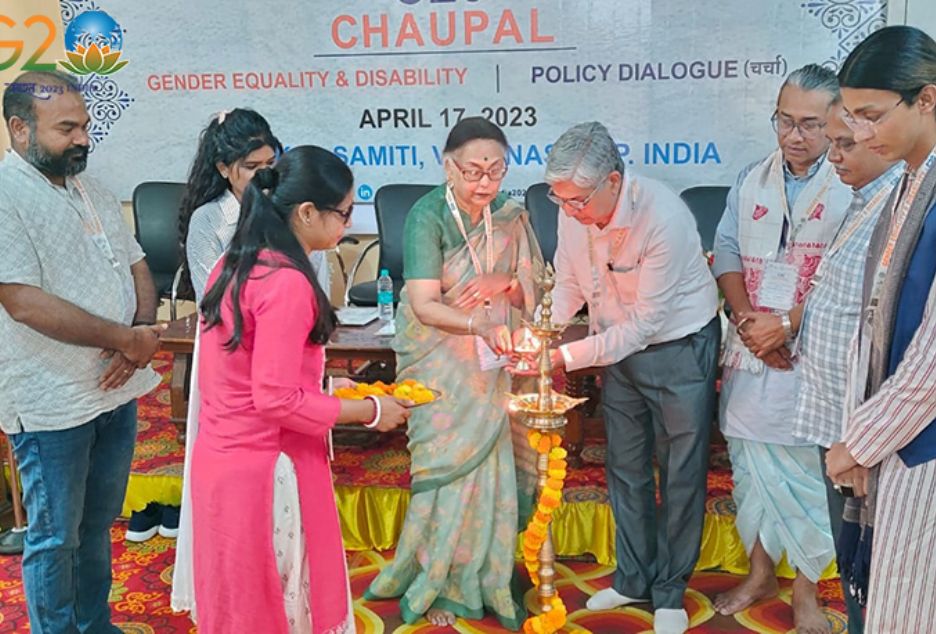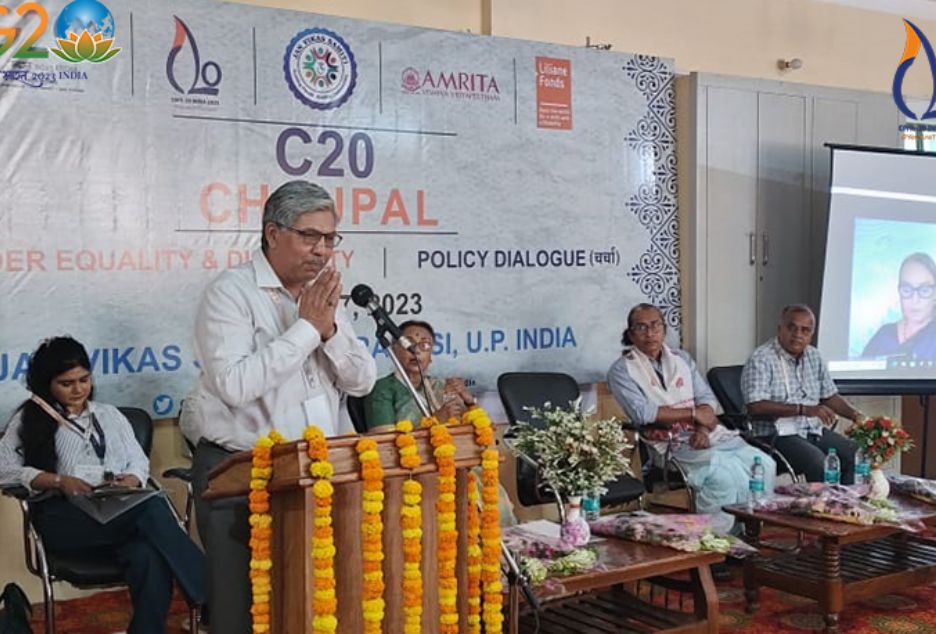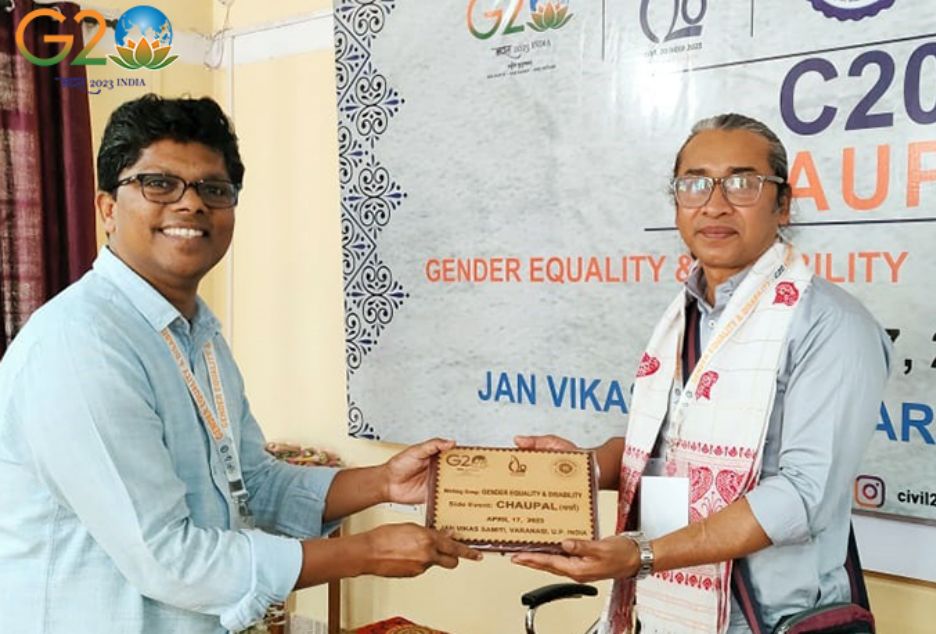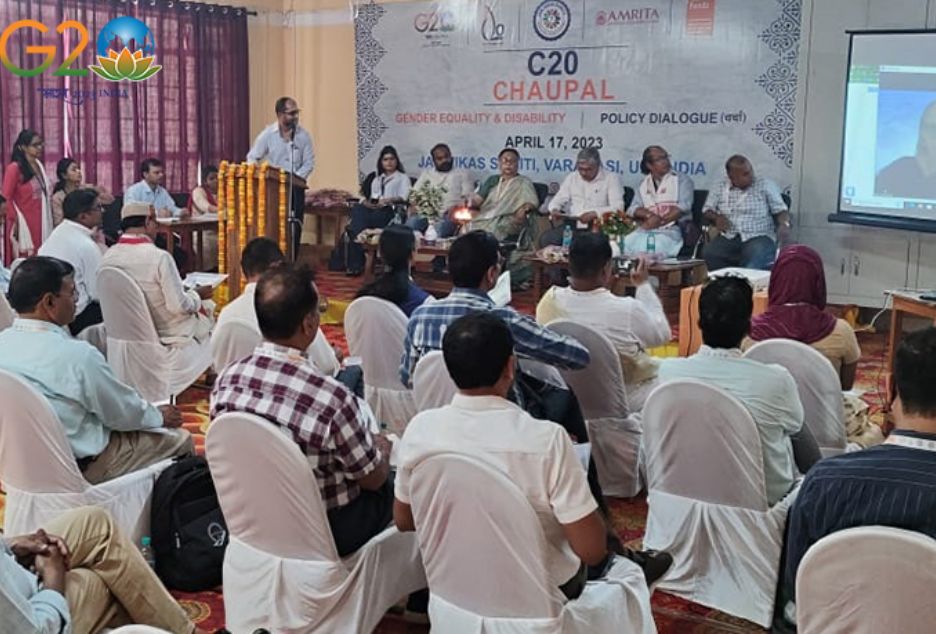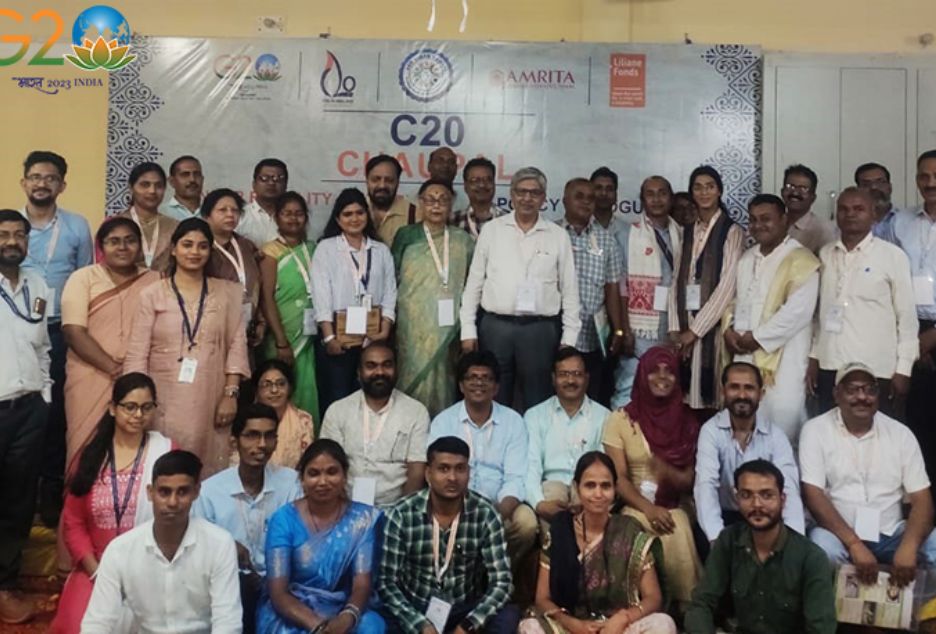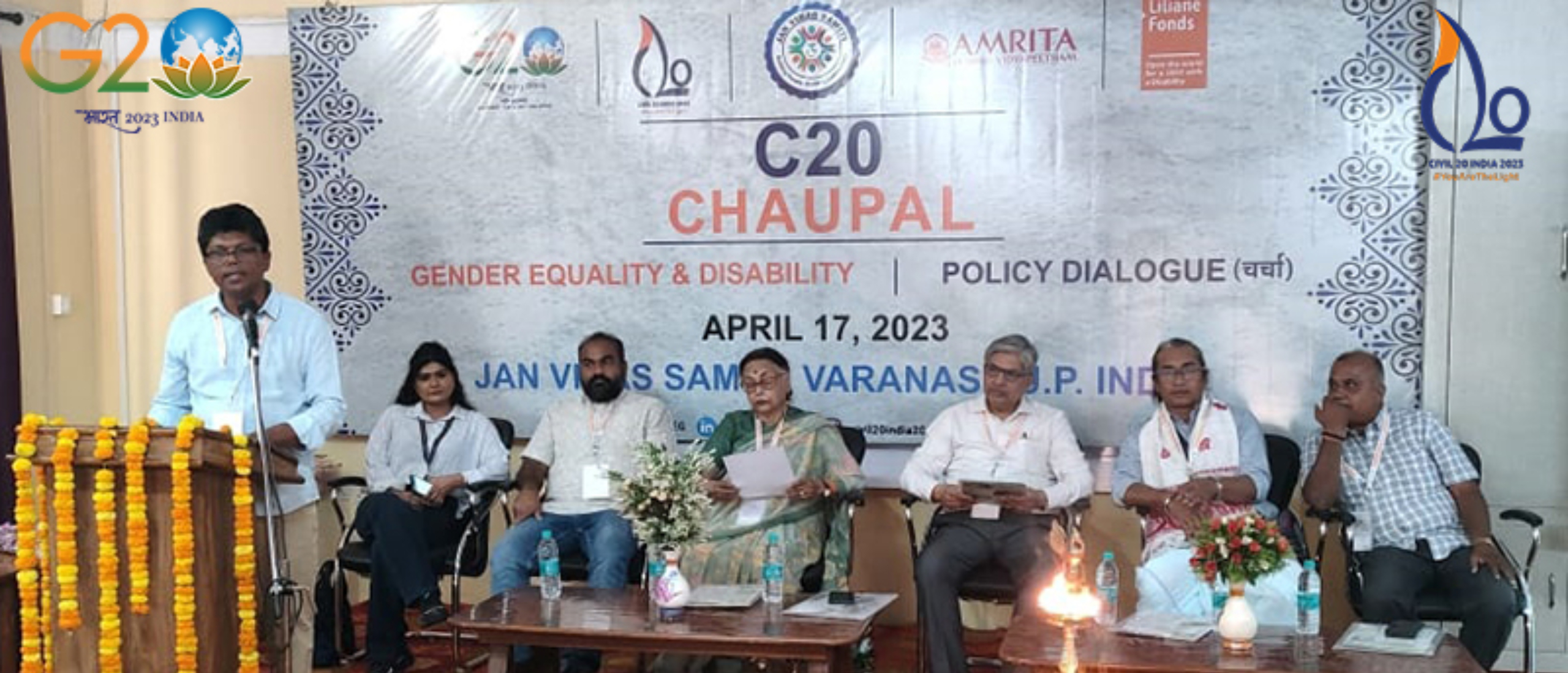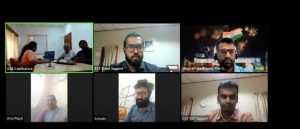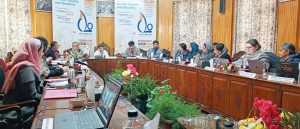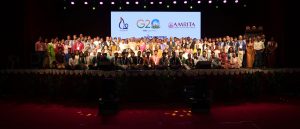The Chaupal, a Side Event of the Civil 20 Working Group on Gender Equality & Disability (GED) was organized by Jan Vikas Samiti at Murdaha Varanasi on April 17, 2023.
Ms. Amala Barnett, Disability sub theme lead from the the GED Working Group and Mr. U.K. Shukla, Asst. Legal Advisor, National Trust, New Delhi addressed the participants during the inaugural session. Dr. Himangshu Das, Ex. Director, NIEPVD, Dehradun, Mrs. Aloka Guha, Ex Chairperson National Trust, Ms. Jyotsna Yadav, Programme Manager, Sarthak Educational Trust, Mr. Uttam Ohja, Member, Regional Advisory Board, Rehabilitation Council of India and Prof. Sanjay, Mahatma Gandhi Kashi Vidyalaya were the speakers for the day who spoke on Access to Health, Education, Employability, Social Security and Engaging Men and Boys to address Gender Inequality
Over 100 people were present for the event. Following the inaugural addresses, five round table sessions were held successively on the topics of access for people with disabilities to healthcare, education, employability, and social security, and engaging men and boys to address gender inequality. A short presentation from a participating CSO member was offered at each round table, followed by discussions amongst all participants in attendance.
The following policy recommendations were drawn from the presentations and the suggestions from the participants.
Access to Healthcare:
- The Comprehensive Right to Health Act (RTH Act) is essential to ascertain full access to health and to ensure preventive health care during stages of pre-conceiving, Prenatal, Natal, Post- natal and prevention of severity of disability: prevention of secondary disability and associated conditions of disability. The Act should cover access to holistic health and disease management, not limited to Epidemics, LifeStyle Diseases, Mental Health Management, Specific Medicines, Specialized Surgery, Specialized Nursing and Palliative Care. The Act may further cover critical issues like Euthanasia for fit cases.
- Ensure District “Early Intervention Centers”, “Cross Disability Early Intervention Centers” and “District Disability Rehabilitation Centers” of the Ministry of Health and Family Welfare are fully functional in each district and are provided with state of the Art, Infrastructure and Manpower.
- Dedicated Block Level 24*7 ambulance services with specially trained staff to be provisioned.
- Subsidy/ Duty free import of Drugs needed for prevention and health care of Persons with Disabilities’ to be made available.
- National Level specific “Health Insurance Schemes” with 360 degree coverages for health care of Persons with Disabilities across all types and severity of disabilities and age to be provided as a Right to each Citizen.
- The insurance regulatory authority of India must enforce all private sector insurance policies extended to Persons with Disabilities, irrespective of types and severity of Disabilities.
- Training of health workers at all levels, Rehabilitation professionals and other Stakeholders’ on Disability specific health care to be provided as a flagship program.
Access to Education:
- Implement ALL the provisions of the NEW Education Policy 2020 with special reference to School education, which is in complete synergy with the RPWD Act 2016
- Implement fully, the Interim Orders of the Hon’ble Supreme Court Order of Oct 2021 wrt, on the education of Children with Special Needs, especially to maintain the Pupil Teacher Ratio in General and Special Schools, Train General teachers in Inclusive Education (esp. paras 7, 15, 53, 57 A, B,C, D, E and F)
Access to Employability:
- National Career Resource Centres (NCSC), earlier known as VRC’s (Vocational Resource Centres) currently under Ministry of Labour should be brought under Department for Empowerment of Persons with Disabilities (DEPwD), under Ministry of Social Justice & Empowerment and NCSCs/VRCs should run on PPP model.
- Currently under NCSC’s there are no employment linkages of trained candidates, there should be a mechanism for national Govt. and Corporate sensitization and job mapping to ensure creation of meaningful job opportunities.
- Interest free loan through digitization application processes to ensure more transparent disbursals for people with disabilities to become an entrepreneur. This will lead to more inclusion and engagement of people with disabilities in the “Made in India” Campaign.
- Subsidized and fully accessible hostel facility especially for people with disabilities in each district headquarters to facilitate them take up jobs outside their homes.
Access to Social Security:
- Motorized wheelchair to persons with 60% disability to be notified, which at present is available for persons with 80% disability in order to improve and boost employability of persons with disability.
- Monthly pension for persons with disabilities to be raised to INR 5,000 at the national level under the scheme “One Nation One Pension” (“एक राष्ट एक पेंशन” परियोजना).
- A separate Ministry of Divyangjan Empowerment to be set up in the whole country and in states to implement all the social welfare schemes related to Divyangjan in a smooth and efficient way.
- In order to achieve gender equality and to protect the rights of people with disabilities there should be continuous awareness campaigns at the national level, like that of Pulse Polio Abhiyan.
Engaging Men & Boys to address Gender Inequality
- All the social development programmes should include discussion of gender norms and how these norms influence behaviour of all sexes.
- Interventions should intentionally and thoughtfully involve both men and boys, women and girls and persons belonging to LGBTQIA+ to create opportunities for constructive dialogue among all.
- It is also important to address the specific needs of men’s Sexual and Reproductive Health (SRH) needs.
- Programmes should measure changes in attitudes toward gender norms and relevant behaviours, with the aim of showing demonstrable health impacts/outcomes.
